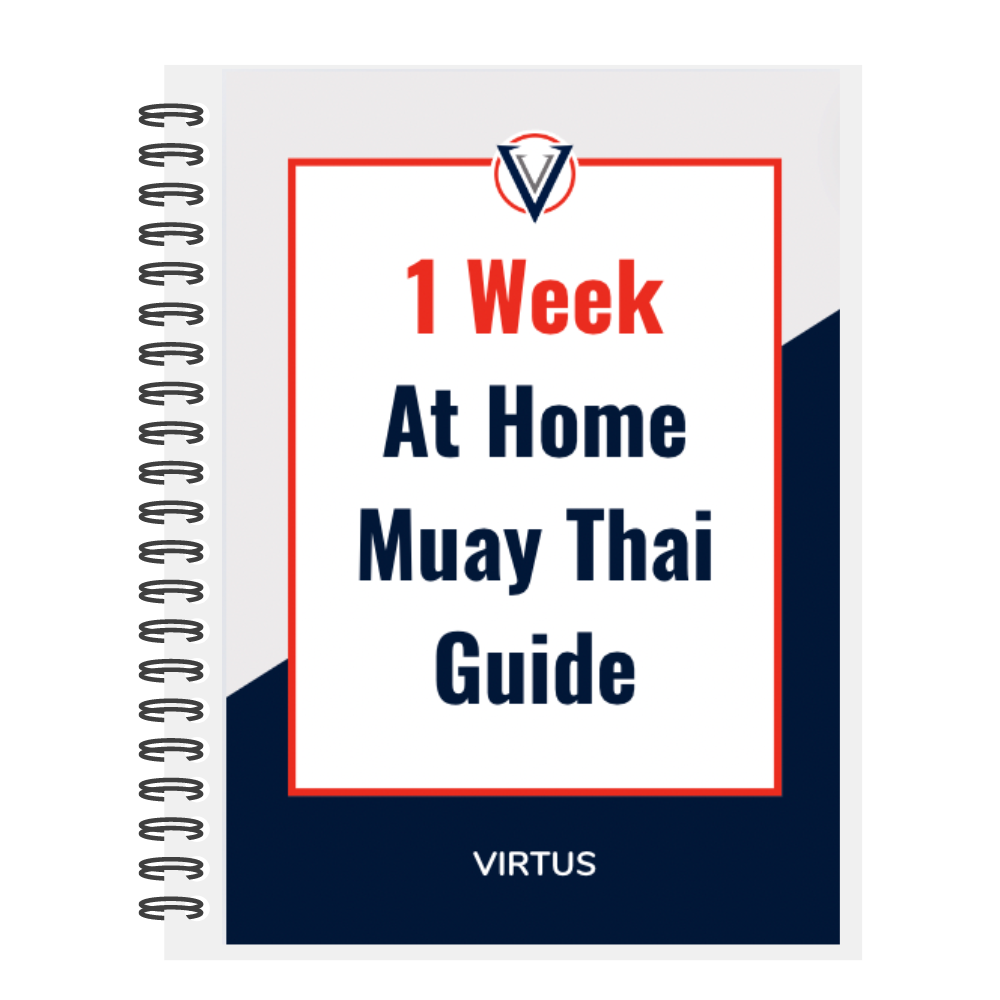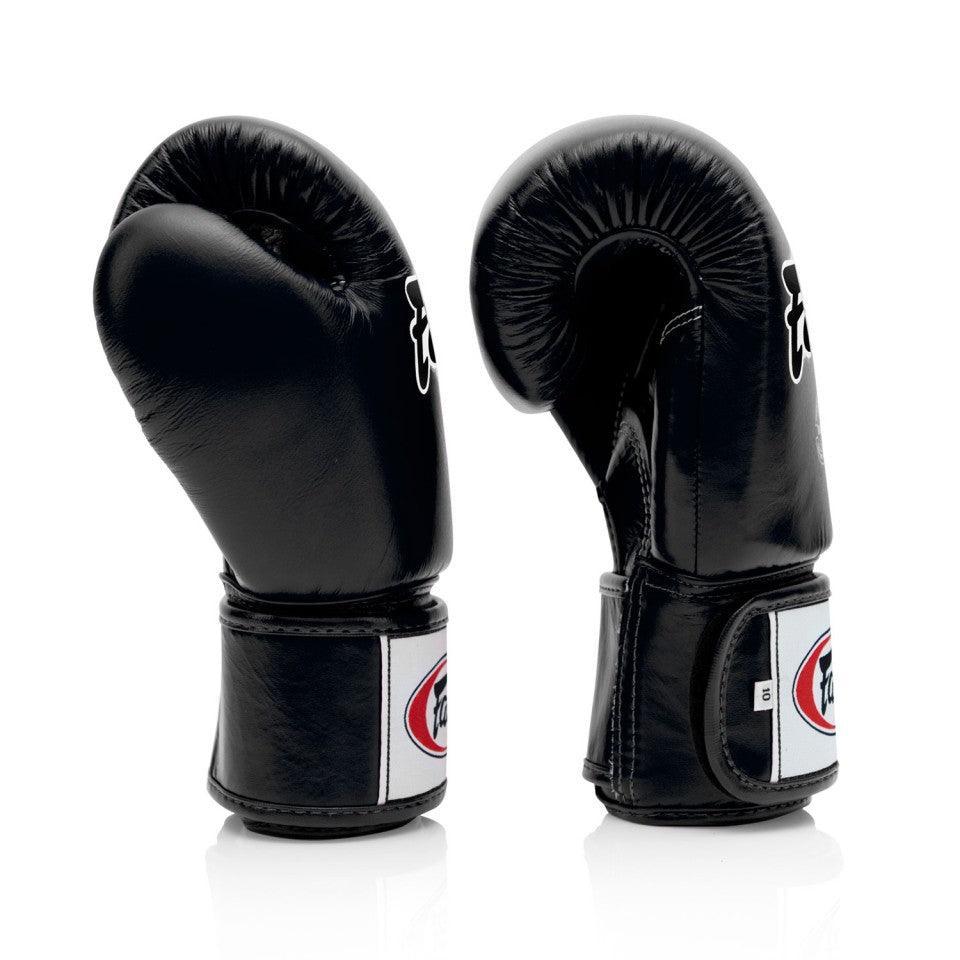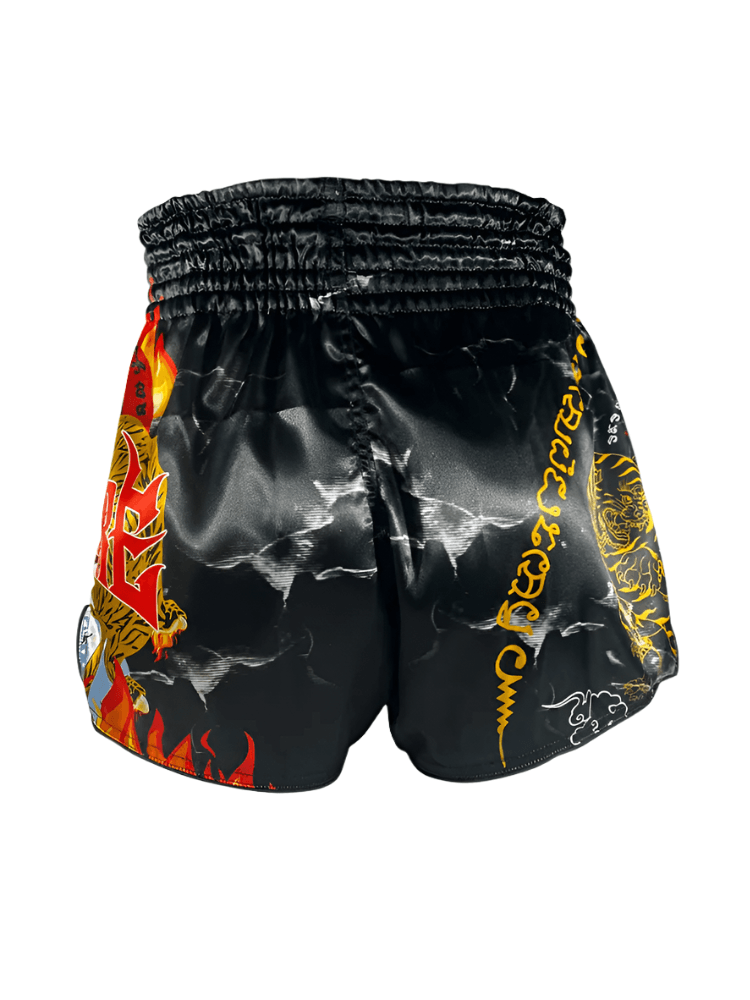Build goals
Creating goals for yourself inspires you into action and focuses the mind around the activities needed to achieve the goal. The more ambitious the goal, the more excited and motivated you'll be once you achieve it. Yet if it is too lofty, you may get demotivated. If you create goals that are too easy to achieve, you'll soon get tired of making them and you'll lose focus as a result. Therefore, it's important to make balanced goals that challenge and inspire you.
Goals need to be structured to ensure you have the most realistic chance of achieving them. A common approach to goal creation is the CSMART method. Challenging, specific, measurable, attainable, realistic and time-bound.
Some examples of CSMART goals for your Muay Thai learning include:
- Learn how to roundhouse kick 50 times with alternating legs (25 each) in 30 seconds by the end of the month.
- Learn how to accurately jab, kick and knee in my opposite stance by the end of the month.
- Be able to spar 5 rounds at 70% power with [chosen partner], with 45 second breaks in between rounds, without getting out-struck, by the end of the year.
- Fight 10 Muay Thai fights with a 90% win rate by the end of the year.
Think over what it is you want to get from your training and translate that into CSMART goals so you can focus and drive yourself to achievement. Regularly review your progress towards the goals and adapt as necessary so you can achieve them faster.

Visualise and shadow box
Elite athletes, like many other high-successful individuals, often attest to the power of visualisation in realising their goals. Whether it's visualising victory, pulling off a particular technique or achieving a particular goal, foreseeing how that will look and pan out influences your subconscious mind into making it a reality. This practice is useful for many different parts of your life and, in Muay Thai, it can help you think about your actions and reactions in training, sparring and competition.
You can take it a degree further by incorporating what you visualised (if relevant of course) into your shadow boxing and regularly shadow box so it becomes ingrained into your memory.
Shadow boxing is a great way to keep your mind sharp and build fitness when outside the gym too. Working 3-6 rounds with small weighted dumbbells and then doing push-ups or burpees in between rounds makes for a high-performance, yet quick, workout.
It's also worthwhile slipping some short shadow boxing into your everyday life, not just carving out time dedicated to it. For example, when walking around the house you can do so while throwing strikes, or you can shadow boxing while you're waiting for the printer at work. You may get some dodgy looks but they're worth the accelerated development it will lead to.
Slow down
It can take a while to understand how to effectively control your body and strength in Muay Thai, that's why newbies are often sloppy, reckless and try to throw with full power, while relying on tension and momentum rather than the torque and physics which are integral to true Muay Thai power. One technique that can greatly improve your Muay Thai skills is the low kick, which targets the legs and can be used for both offensive and defensive purposes. With proper timing and technique, low kicks can be extremely effective in both offense and defence and can cause significant pain to your opponent.
Slow it down all down. You don't need to throw every combination as fast as possible, nor do you need to throw every strike or undertake every exercise quickly. Slowing things down helps you understand the right motions involved, identify where you're going wrong and engage the right muscles for any given strike or exercise. It's especially useful when honing your movement, trying out a new technique or when perfecting a combination.
That said, if you're a veteran it's also worth slowing down sometimes, physically and mentally, so you can take a step back, assess your performance and identify areas for improvement. Breaking down your techniques, combinations and movement helps you spot minor issues which can make a major difference if corrected.
Study with videos, live fights and articles
Complement your training sessions with some visual learning to enhance your understanding and accelerate your growth. There are countless videos on Youtube and sites like Muay Thailand that can help you hone techniques, understand the physics of strikes and learn from the best by watching their fight videos. In addition, attending Muay Thai events will inspire you as you soak up the atmosphere and watch the sport up close, enabling you to learn from the fighters and spot things they could have done differently. Watching videos and live events will also motivate you to train sooner and harder.
You don't have to sit down and watch videos for hours on end to get the benefit. If you consistently watch a video or two a day, you'll be inspired and create ideas that you can then put in practice. Utilise the time you spend on your commute, your lunch break or while you're queuing for coffee to get your daily dose of visual learning and go to bed a little bit smarter each day. Don't underestimated the value of watching videos and live fights of Muay Thai fighters as they are a great way to absorb new knowledge and techniques.
Some of the best video playlists for learning Muay Thai include those by The Muay Thai Scholar and Lawrence Kenshin.
Ask for advice & listen
Never develop enough arrogance or let a lack of confidence hinder you from asking advice from your coaches, partners and fellow practitioners. No-one knows it all and only a fool believes they have nothing more to learn.
When asking for advice, be specific. Ask what you want help with and explain, succinctly , what you think is stopping you from getting it right at present. Also, don't be afraid to ask a coach to show a technique/combination again – just don't ask again and again as it can stop others in the group from working.
Open your mind and be willing to learn from others. You'll learn different angles, interpretations and ideas by putting in the effort to learn from those around you.
Asking the right question is just part of it. You have to listen, understand and apply the advice to get the benefit. When you're listening, look whoever is imparting the knowledge in the eye, ask follow up questions if needed, apply the advice and ask for confirmation you got it right.
FAQS
Can you teach yourself Muay Thai?
Yes, you can teach yourself Muay Thai to some extent by using online tutorials, videos, and resources. However, it is highly recommended to eventually train with a qualified instructor to ensure proper technique, form, and safety in your practice. Additionally, sparring and partner drills are essential components of Muay Thai training that are best learned under the guidance of an experienced trainer. Remember that consistency and dedication are key when learning any martial art.
How many years does it take to learn Muay Thai?
Learning Muay Thai is a journey that varies for each individual based on factors such as dedication, frequency of training, natural ability, and goals. Generally, it can take several years to become proficient in Muay Thai, with some practitioners spending a lifetime honing their skills. Consistent practice and guidance from experienced trainers are key to progressing in this martial art. Remember, the learning process is ongoing, and even seasoned practitioners continue to refine their techniques and knowledge over time.
Overall, the time it takes to learn Muay Thai can vary depending on factors such as your previous experience in martial arts, your level of physical fitness, how frequently you train, and your overall dedication to the practice. Generally, it can take several months to a few years to develop a solid foundation in Muay Thai and feel comfortable with the techniques and strategies involved, including punching and kicking. However, there are ways to accelerate your learning, such as consistent training, focus, and patience. Incorporating weight training and running/skipping can also help improve your physical abilities and enhance your Muay Thai skills. Remember, learning martial arts is a journey that requires commitment and perseverance, so enjoy the process and celebrate your progress along the way!
What should a beginner know about learning Muay Thai?
As a beginner in Muay Thai, it is important to focus on building a strong foundation. Understanding the basic techniques such as punches, kicks, elbows, and knees is crucial. Practicing proper stance, footwork, and defensive strategies will help you progress effectively in your training. It's also essential to learn about the culture and traditions of Muay Thai to deepen your connection to the sport. By immersing yourself fully in the art form, you will not only improve your physical skills but also foster a deeper appreciation for the rich history behind Muay Thai.
Is It Hard To Learn Muay Thai?
Learning Muay Thai can be challenging, as it is a physically demanding martial art that requires discipline, dedication, and perseverance. However, with the right mindset, training, and guidance, anyone can learn Muay Thai. It is important to start slowly, focus on proper technique, and gradually build up your strength and skills over time. Training regularly, listening to your instructors, and staying committed to your practice are key factors in mastering Muay Thai. Muay Thai fighters, with their mastery of 8 limbs and clinching, have proven that it is possible to excel in this art with hard work and determination. While it may be hard at times, the sense of accomplishment and progress you experience as you improve makes the journey worthwhile. Remember, everyone starts somewhere, so don't be discouraged by initial challenges – keep pushing yourself and enjoy the learning process!













